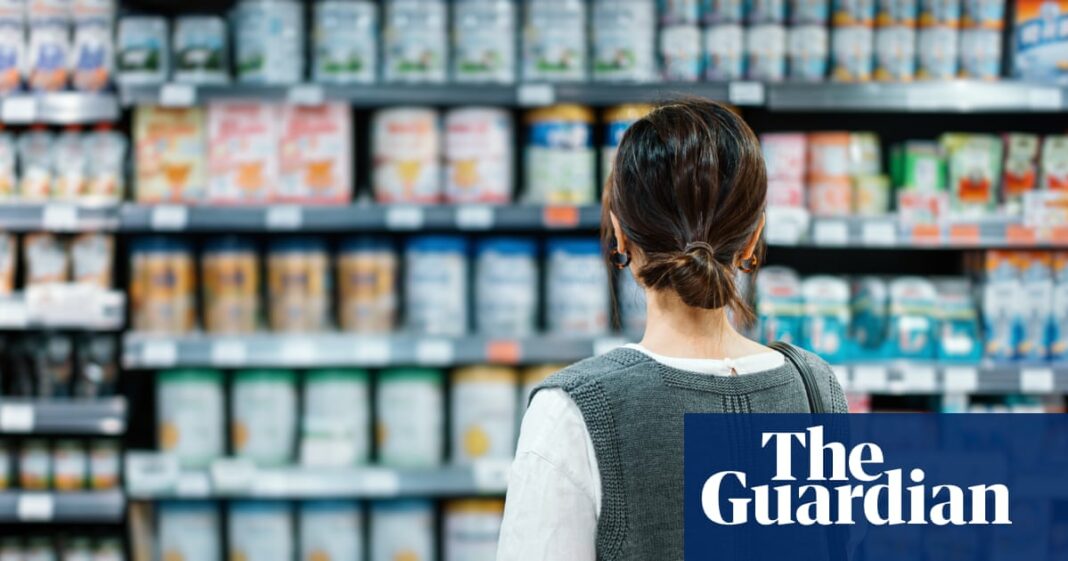Baby food manufacturers have been given 18 months to improve the quality of their products in England, amid mounting concerns that leading brands are nutritionally poor.
The new voluntary guidance from the government calls for a reduction in sugar and salt levels in food for infants and toddlers.
It also requests clearer labelling of products to address misleading marketing claims that make baby foods seem healthier than they are.
This will cover products with labels such as “contains no nasties”, which are high in sugar. Others are labelled as snacks for babies, which goes against government recommendations that children aged six to 12 months do not need snacks between meals, only milk.
It comes after researchers found that leading brands, such as Ella’s Kitchen and Heinz, were making sugar-heavy, nutritionally poor baby food that failed to meet the needs of infants.
A report by the University of Leeds school of food science and nutrition, published in Aprilfound that some brands also carried misleading marketing claims, and urged the government to impose the same traffic light system found on chocolate bars and ice-cream.
The report’s authors said the new voluntary guidelines were disappointing and would have limited impact. Dr Diane Threapleton, the lead author of the Leeds study, said: “They’re quite narrow in scope, only looking at sugar and salt. But salt is not a major concern in UK baby food.”
She raised particular concern that the voluntary guidelines did not address the poor nutritional value of many purees and pouches, which were targeted at weaning babies. The NHS advises parents to start weaning when a child is about six months oldwith vegetables that are not sweet, such as broccoli, cauliflower and spinach.
“These products are often too watery. Children need really energy-dense food, rich nutrient-dense food with lots of different fibres and different sources of iron and zinc,” she said. “But these purees, particularly those targeted as first weaning foods, are really low in energy. They are bad substitutions, especially if you’re displacing a nutritious milk feed.”
High levels of sugar in children’s diets is a significant factor contributing to high rates of childhood obesity in the UK, which is among the highest in western Europe. At the start of primary school, more than 22% of children in England are obese or overweightaccording to the latest official statistics.
The public health minister, Ashley Dalton, said the guidelines would help parents who were often “bombarded with confusing labels, disguising unhealthy foods packed with hidden sugars and salt”.
Prof Simon Kenny, NHS England’s national clinical director for children and young people, said: “These new guidelines alongside clearer labelling will help empower busy parents to make nutritious choices that give their children the best possible start in life.”
Last year a House of Lords report found commercial infant foods “are routinely high in sugar and marketed misleadingly”. It called on the government to introduce mandatory legal standards for commercial infant foodswithout input from manufacturers.
A Department of Health and Social Care spokesperson said it expected manufacturers to meet the labelling guidelines within 18 months, adding: “If businesses fail to act, we will consider tougher measures.”
Another study found legislation in England to restrict supermarket sales of foods high in fat, sugar or salt had led to millions fewer products being bought.
Researchers at the University of Leeds estimated that 2m fewer such products were sold per day after the law took effect in 2022. The number of items high in fat, sugar or salt sold in Tesco, Morrisons, Sainsbury’s and Asda dropped from 20 out of every 100 before the legislation to 19 out of every 100 afterwards.



